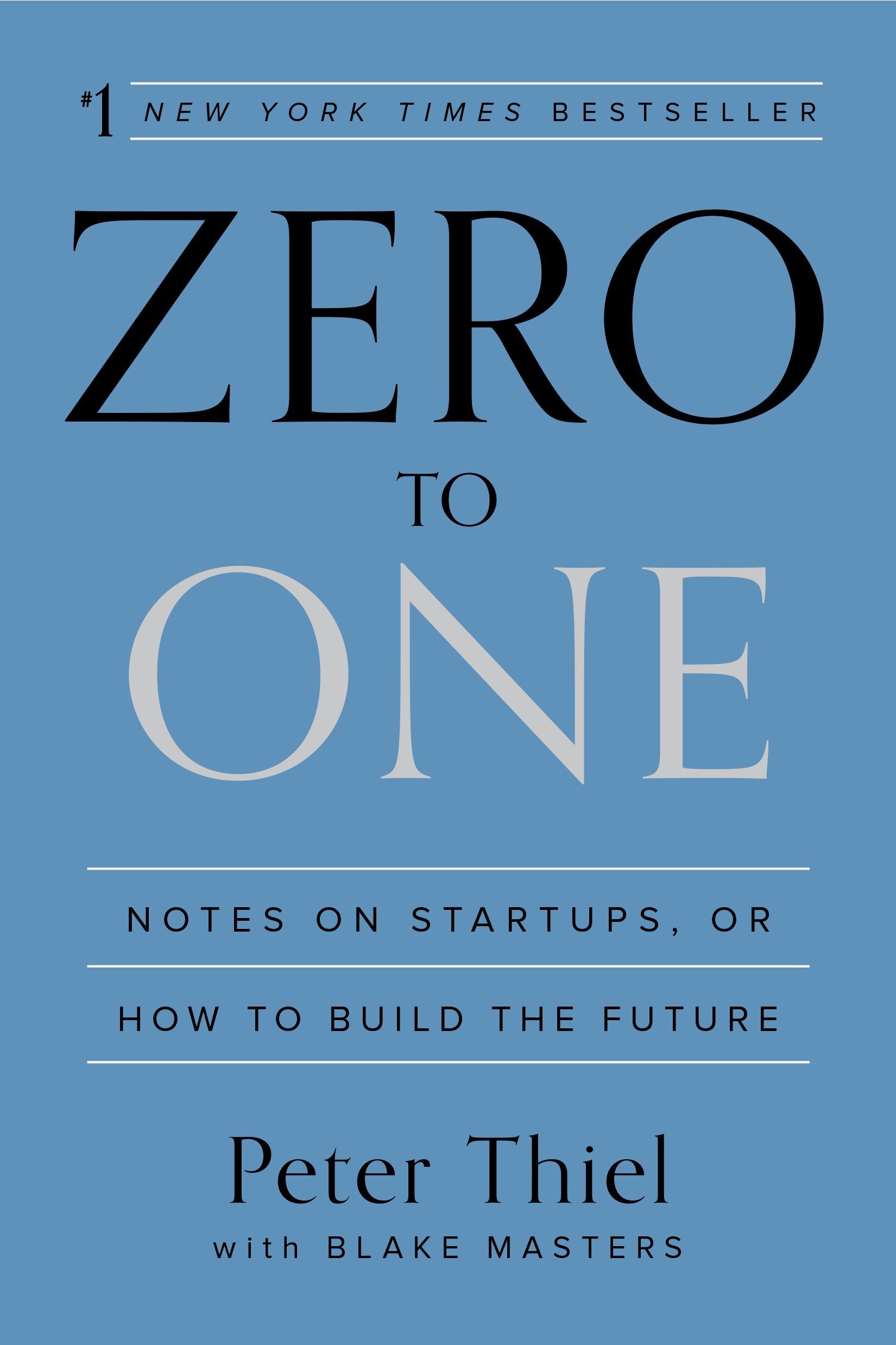In the captivating article “Zero to One Book Recap,” you’ll gain valuable insights from Peter Thiel’s groundbreaking work. This book recap provides a comprehensive overview of the key lessons learned, compelling stories, and practical examples that will inspire and empower readers. With a focus on innovation and building successful startups, this recap encapsulates Thiel’s powerful ideas and encourages readers to embrace a mindset of going from zero to one, rather than simply adding more to existing models. Prepare to embark on a transformative journey as you explore the principles and concepts outlined in “Zero to One.”
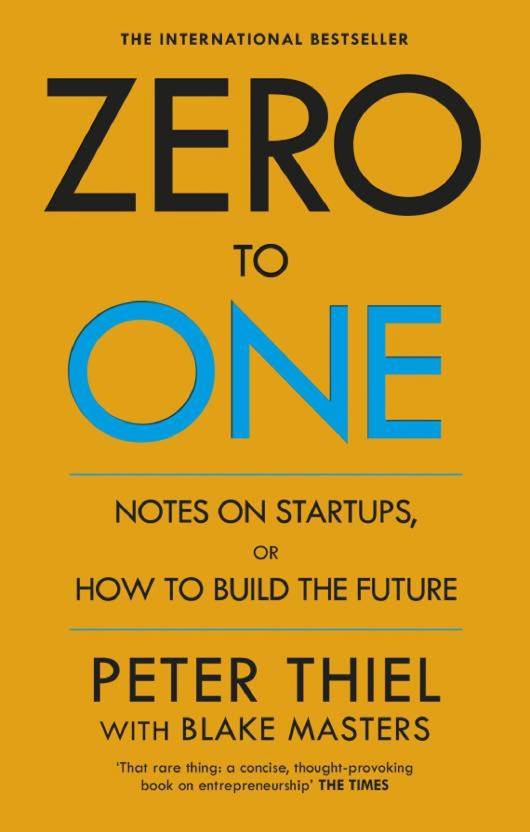
Chapter 1: The Challenge of the Future
The Power of Technology
Technology has become an integral part of our lives, transforming industries and the way we do things. In “Zero to One,” Peter Thiel emphasizes the power of technology in shaping the future. Technology enables us to create new and innovative solutions, disrupting traditional industries and paving the way for progress. By understanding the potential of technology and harnessing its power, you can unlock endless possibilities and opportunities.
The Importance of Founders
Founders play a crucial role in the success of a business. They are the visionaries who have the courage to pursue their dreams and turn their ideas into reality. In “Zero to One,” Thiel emphasizes the importance of founders and their unique ability to create something of value. Founders possess the passion, determination, and expertise necessary to navigate the challenges of entrepreneurship and build successful businesses. As a founder, embrace your role and embrace the challenges that come your way, for it is through your efforts that you can make a significant impact on the world.
Zero to One
“Zero to One” is not just about incremental progress; it’s about creating something entirely new and groundbreaking. Thiel coined the term “zero to one” to describe the journey of going from nothing to something extraordinary. It’s about starting from scratch, paving your own path, and creating a unique and valuable offering. Zero to one signifies a leap in innovation that drives progress and sets you apart from competitors. By aiming for zero to one, you are embracing the challenge of creating something truly exceptional.
Chapter 2: Party Like It’s 1999
The Dot-Com Bubble
The dot-com bubble of the late 1990s was a period of excessive optimism and speculation in the technology industry. Companies with little to no revenue or clear business models were valued at astronomical levels. However, when the bubble burst in 2000, many of these companies collapsed, and investors suffered significant losses. Thiel highlights this historical event to emphasize the importance of building sustainable businesses based on solid foundations rather than relying on speculative valuations.
Competition vs. Monopoly
In “Zero to One,” Thiel challenges the conventional belief that competition is always beneficial. He argues that fierce competition often leads to a race to the bottom, where companies are forced to lower prices and sacrifice profitability. Instead, Thiel encourages entrepreneurs to aim for monopolies. While the term monopoly may carry negative connotations, Thiel defines it as a market in which a company can reap significant rewards by creating a unique offering or dominating a niche. Monopolies can generate sustainable profits and have more control over their destiny compared to companies stuck in fierce competition.
The Value of a Monopoly
Thiel emphasizes the value of a monopoly by highlighting successful companies such as Google and Facebook. These companies have carved out dominant positions in their respective markets, allowing them to enjoy substantial profits and influence. Being a monopoly enables a company to set its own rules and shape the industry. However, Thiel also warns that monopolies must continue to innovate and improve to maintain their competitive advantage and avoid stagnation.
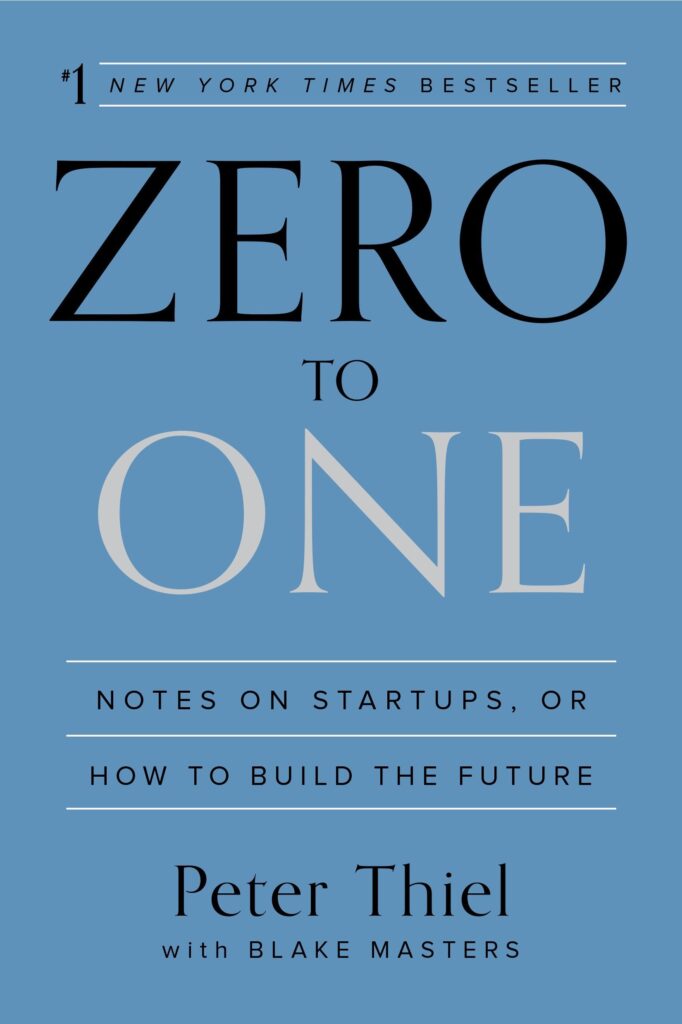
Chapter 3: All Happy Companies Are Different
Building a Sustainable Company
Creating a sustainable company involves more than just achieving short-term success. Thiel stresses the importance of building a solid foundation for long-term growth and stability. He encourages entrepreneurs to focus on fundamental aspects such as strong team dynamics, a robust business model, and a clear value proposition. By prioritizing sustainability, you can create a company that thrives even in challenging environments.
Differentiation as a Competitive Advantage
In a crowded marketplace, differentiation is key to standing out from competitors. Thiel argues that all happy and successful companies have found a way to differentiate themselves. Whether it’s through a unique product, exceptional customer service, or innovative business practices, differentiation sets a company apart and creates a competitive advantage. Thiel advises entrepreneurs to identify what makes their company special and emphasize those unique attributes in their branding and messaging.
Creating a Monopoly
Thiel promotes the idea of creating a monopoly as the ultimate form of differentiation. By dominating a specific market, a company can reap significant profits and have greater control over its destiny. However, creating a monopoly requires more than just great products or services – it necessitates strategic planning, execution, and constant innovation. Thiel advises entrepreneurs to focus on creating a valuable niche and ruthlessly expanding their market dominance to achieve a monopoly.
Chapter 4: The Ideology of Competition
The Myth of Perfect Competition
Contrary to traditional economic theory, Thiel challenges the notion of perfect competition. Perfect competition assumes that all market participants have equal access to information and resources, leading to optimal outcomes. However, Thiel argues that perfect competition is a destructive and unrealistic concept. In reality, markets are often imperfect, and true success comes from finding and exploiting those imperfections. By understanding the flaws in the market and identifying opportunities, entrepreneurs can position themselves for success.
Defining Your Market
Thiel emphasizes the importance of defining your market and identifying your target audience. Entrepreneurs often make the mistake of trying to serve everyone, diluting their value proposition and spreading their resources too thin. Thiel urges entrepreneurs to focus on a specific niche market, where they can understand and cater to the unique needs of their customers. By defining your market, you can tailor your offerings, differentiate yourself, and build a loyal customer base.
Strategies for Competition
Competition can be fierce and challenging, but Thiel offers strategies for navigating this landscape. He advises entrepreneurs to seek monopolies instead of engaging in direct head-to-head competition. By identifying unique opportunities, offering a superior product or service, and dominating a niche, entrepreneurs can minimize direct competition and establish a strong market position. Thiel also emphasizes the importance of constant innovation to stay ahead of emerging competitors and maintain a competitive edge.
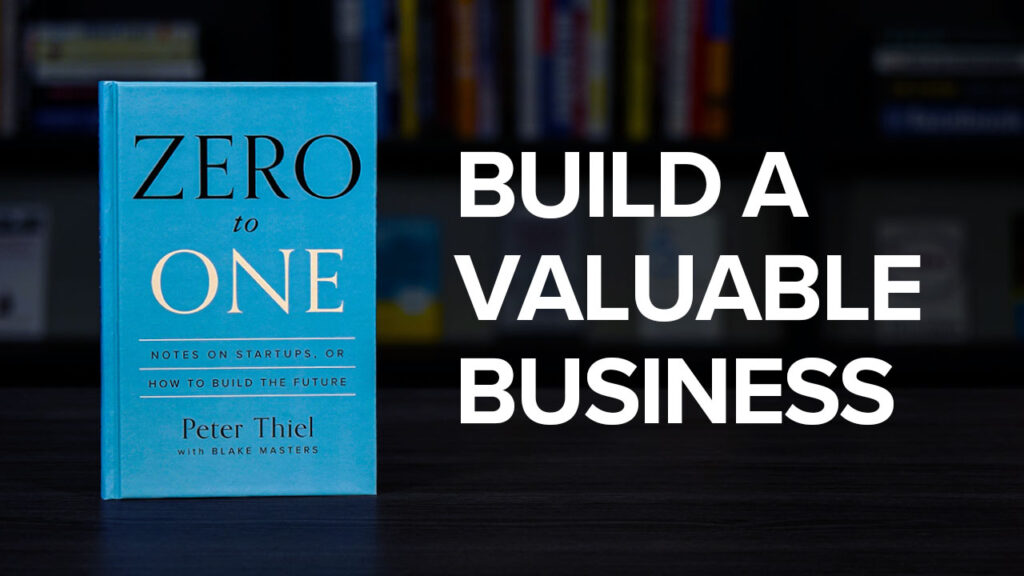
Chapter 5: Last Mover Advantage
First Mover vs. Last Mover
The conventional belief is that being the first mover in a market is advantageous. However, Thiel challenges this notion by highlighting the advantages of being a last mover – entering a market after others have laid the groundwork. Last movers can learn from the mistakes and successes of first movers and avoid costly trial-and-error. By strategically entering a market, refining existing products or services, and offering a superior value proposition, last movers can often outperform their early competitors.
Timing is Key
Timing plays a crucial role in business success. Thiel advises entrepreneurs to be patient and wait for the right opportunity. Jumping into a market too early or too late can have detrimental effects on a business. Timing requires a deep understanding of market dynamics, trends, and potential disruptions. By carefully assessing market conditions and staying alert to changes, entrepreneurs can time their entry and capture significant advantages in the long run.
Strategic Delay
Strategic delay is a concept that Thiel introduces to counter the pressure entrepreneurs often face to launch their ideas quickly. While speed is often perceived as a competitive advantage, Thiel argues that delaying the launch can be strategically beneficial. By taking the time to refine ideas, gather more information, and build a strong foundation, entrepreneurs can increase their chances of success. Strategic delay allows for more thoughtful decision-making and reduces the risk of premature failure.
Chapter 6: You Are Not A Lottery Ticket
Creating Your Future
Thiel challenges the common belief that success is based on luck or chance. Instead, he encourages individuals to take control of their destiny and actively create their future. Success comes from deliberate action, critical thinking, and a relentless pursuit of goals. By recognizing that success is within your control, you can overcome obstacles and push beyond limits, ultimately creating a positive impact on your life and those around you.
Rejecting the Zero-Sum Mindset
Thiel warns against adopting a zero-sum mindset, where one person’s success is perceived as another’s failure. In reality, he argues that true progress is not limited to finite resources or opportunities. Rather than viewing the world as a zero-sum game, Thiel encourages individuals to seek out and create new opportunities, expanding the realm of possibilities for everyone. By focusing on collaboration, innovation, and collective growth, you can achieve more significant and sustainable success.
Taking Responsibility for Your Success
In “Zero to One,” Thiel emphasizes the importance of taking full responsibility for your success. Blaming external factors or waiting for the perfect circumstances will only limit your potential. Instead, seize control of your journey and embrace the challenges that come with it. Recognize that setbacks and failures are opportunities for growth and learning. By accepting responsibility for your own success, you empower yourself to overcome obstacles, adapt to change, and achieve greatness.
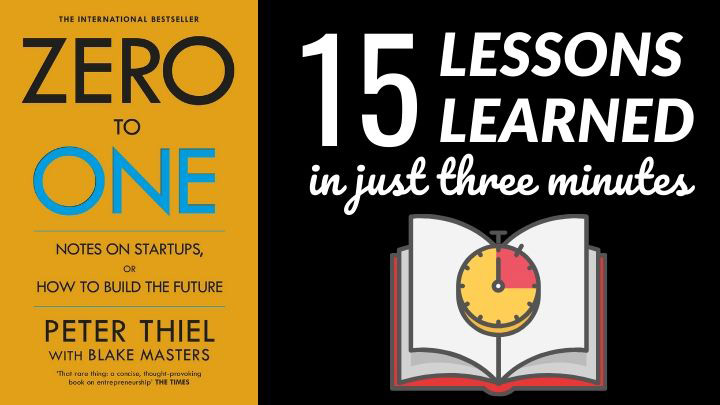
Chapter 7: Follow the Money
The Importance of Cash Flow
Cash flow is the lifeblood of any business, and Thiel stresses its significance in “Zero to One.” Entrepreneurs need to prioritize and manage their cash flow effectively to ensure the long-term viability of their businesses. Understanding cash flow dynamics, projecting future needs, and implementing strategies to optimize cash flow are integral to sustaining growth and weathering financial challenges.
Profitability vs. Growth
In the startup world, the focus is often on rapid growth and market dominance, sometimes at the expense of profitability. Thiel challenges this mindset by emphasizing the importance of profitability as a measure of a company’s long-term success. While growth is important, it should not come at the expense of profitability. Balancing growth and profitability allows entrepreneurs to build sustainable businesses and have more control over their destiny.
Financial Strategies for Startups
Thiel offers practical insights and strategies for managing finances in the startup world. He emphasizes the importance of finding a balance between capitalizing on growth opportunities and maintaining financial discipline. Thiel advises entrepreneurs to seek funding strategically, aligning it with their business objectives and ensuring the right capital structure. By being mindful of financial decisions and understanding the impact they have on long-term sustainability, entrepreneurs can build financially resilient businesses.
Chapter 8: Secrets
The Power of Knowledge
In “Zero to One,” Thiel highlights the significance of knowledge and the advantage it brings. Knowledge is a form of power that allows individuals and organizations to make informed decisions, identify hidden opportunities, and create unique value. Thiel urges entrepreneurs to actively seek out knowledge, continually learn, and leverage their expertise to gain a competitive edge.
Gathering and Utilizing Secrets
Secrets refer to valuable, non-obvious information that can give businesses a competitive advantage. Thiel encourages entrepreneurs to identify and gather secrets, whether it’s through insider knowledge, proprietary technology, or unique perspectives. By utilizing these secrets effectively, entrepreneurs can differentiate themselves, create innovative products or services, and ultimately dominate their markets.
The Advantage of Confidentiality
In a world of information overload, Thiel emphasizes the power of confidentiality in “Zero to One.” Keeping certain aspects of your business under wraps can provide a strategic advantage. By safeguarding secrets, you maintain control over their dissemination and can deploy them at the most opportune moment. Confidentiality enables you to protect your intellectual property, maintain a competitive edge, and stay ahead in a rapidly evolving marketplace.
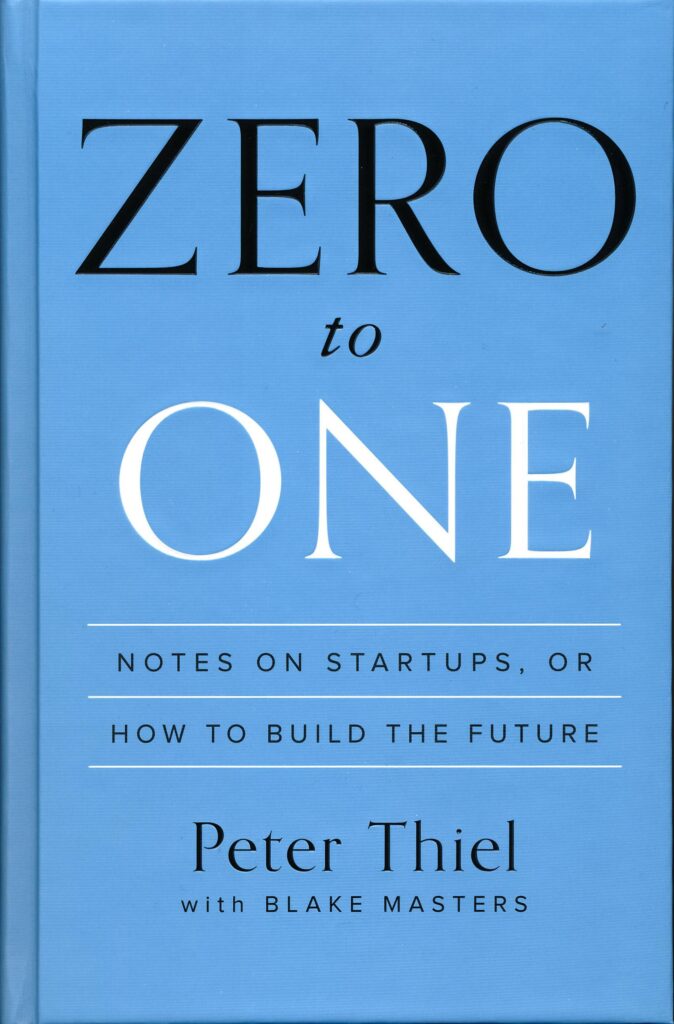
Chapter 9: Foundations
Building a Strong Foundation
A strong foundation is essential for any successful business. Thiel stresses the importance of establishing a clear vision, mission, and values that guide all aspects of the organization. A strong foundation encompasses not only the business model but also the company culture, strategic direction, and long-term goals. By building a solid foundation, entrepreneurs can create a stable and resilient platform for growth and success.
The Importance of Culture
Culture sets the tone for an organization and plays a crucial role in its success. Thiel emphasizes the significance of fostering a positive and values-driven culture that aligns with the company’s mission and objectives. A strong culture attracts top talent, promotes collaboration and innovation, and creates a positive working environment. By prioritizing culture, entrepreneurs can build a cohesive and motivated team that drives the company’s success.
Hiring and Retaining Top Talent
An organization is only as strong as its employees, and Thiel recognizes the importance of hiring and retaining top talent. Hiring the right people, with the right skills and cultural fit, is critical for building a successful team. Thiel advises entrepreneurs to be diligent in the hiring process, assess candidates comprehensively, and invest in employee development. By nurturing and retaining top talent, entrepreneurs can build a high-performing team that drives innovation and sustains long-term growth.
Chapter 10: The Mechanics of Mafia
The Benefits of a Strong Network
Building a strong network is a valuable asset for entrepreneurs. Thiel draws upon the concept of the “PayPal Mafia,” a group of former PayPal employees who went on to become successful startup founders and venture capitalists. Thiel highlights the benefits of a strong network, including access to knowledge, resources, and business opportunities. By cultivating and nurturing relationships within your industry, you can tap into a supportive community that can provide guidance, collaborations, and valuable connections.
Creating a Cohesive Team
A cohesive team is vital for success in any endeavor. Thiel emphasizes the importance of building a team that shares a common vision and values, possesses complementary skills, and demonstrates strong collaboration. By fostering a culture of trust, open communication, and mutual respect, entrepreneurs can ensure that their teams work together harmoniously towards a shared goal. A cohesive team can overcome challenges, drive innovation, and achieve extraordinary results.
Mentorship and Leadership
Thiel underscores the importance of mentorship and leadership in “Zero to One.” Mentorship has the potential to accelerate learning, provide guidance, and offer valuable insights from experienced individuals. By seeking out mentors and cultivating relationships with industry leaders, entrepreneurs can tap into a wealth of knowledge and experience. In turn, entrepreneurs are urged to be conscious leaders, inspiring and guiding their teams towards success. Effective leadership creates an environment where individuals can thrive, take risks, and reach their full potential.
In “Zero to One,” Peter Thiel provides a thought-provoking and practical guide for entrepreneurs on their journey from zero to one. By exploring topics such as the power of technology, the importance of differentiation, the art of timing, and the value of knowledge, Thiel challenges conventional wisdom and offers innovative strategies for success. Through practical examples, case studies, and inspiring stories, “Zero to One” empowers entrepreneurs to pursue their visions, overcome challenges, and create something truly extraordinary. Whether you are a seasoned entrepreneur or just starting out, “Zero to One” is a must-read for anyone looking to make a significant impact on the future.
